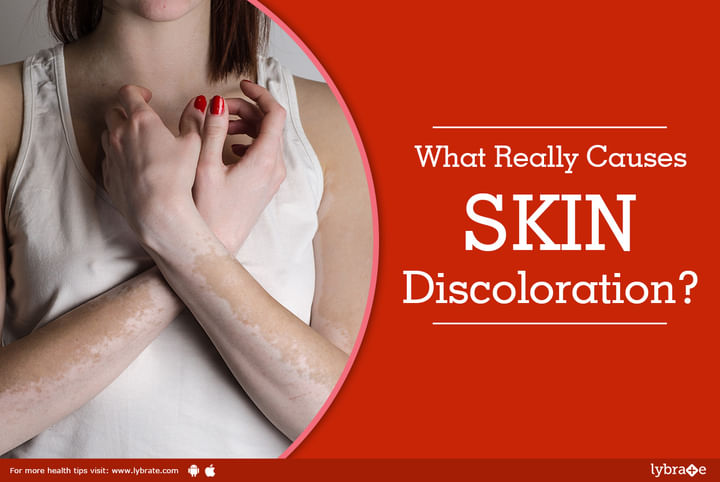What Really Causes SKIN Discoloration?
Causes of skin discoloration and its types
Skin discoloration is a condition where the overall color of skin appears patchy and uneven. This generally takes the form of dark spots, blotchiness, jagged sunburns, etc. It is caused due to unequal distribution of melanin, the pigment responsible for imparting color to the skin.
Melanin is produced by the melanocyte cells in the epidermis layer of the skin. This pigment plays a protective role in the skin, particularly when it comes to defense against sun damage. Production of melanin is generally uniform through the skin but sometimes, various anomalies cause some parts of the skin to produce excess melanin whereas others may produce none at all. This leads to discoloration of the skin, making the appearance of skin tone irregular and non-uniform.
What are the different types of skin discoloration?
There are various types of skin discoloration which are caused by different medical and nonmedical conditions.
Some of them are as follows:
- Melasma. This type of skin discoloration occurs due to fluctuations in the levels of estrogen and progesterone in the body. This condition is found most commonly in pregnant women.
- Vitiligo. This is a medical condition which is caused when melanocyte cells cease to function or die. It manifests itself in the form of white patches that appear on the skin.
- Sunburns and Tans. These appear on the skin in the form of dark patches, uneven splotches and burns. It is caused by unprotected and prolonged exposure to the sun.
- Tinea Versicolor. This type of skin discoloration is caused by a fungal infection that makes skin appear dull and flaky in patches. It occurs due to hormone level fluctuations or a malfunction in the immune system.
- Skin Cancer. When the skin gets affected by melanomas and carcinomas, it appears discolored. This type of discoloration changes shape, size and texture and requires the immediate attention of a specialist.
- Other causes of skin discoloration include genetic inheritance, allergic reactions and drug reactions. The diagnosis of treatment depends on the exact nature of the condition and varies from case to case.
'Consult'.
Related Tip: Can Use of Sunscreen Reduce Skin's Aging?



+1.svg)
